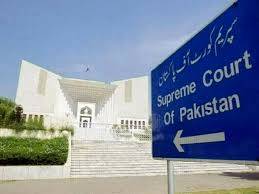The National Judicial Policy Making Committee (NJPMC), chaired by Chief Justice of Pakistan Yahya Afridi, has approved strict timelines for the disposal of different categories of court cases across the country.
The meeting was attended by Chief Justices of all High Courts and Attorney General Mansoor Usman Awan. It was decided that property disputes must be resolved within two years, while inheritance, public revenue, and financial disputes should be concluded within one year.
Criminal cases involving minors will be decided within six months, and murder trials must be completed within two years.
The committee emphasised the need for an effective mechanism to ensure that detainees are produced before a magistrate within 24 hours.
The Attorney General assured the members that such a framework would be devised and presented at the next meeting.
Standard operating procedures (SOPs) to safeguard judicial independence were also reviewed. It was agreed that any external interference in judicial matters must be reported within 24 hours and addressed within 14 days, while ensuring the dignity and confidentiality of judges who file complaints. High Courts have been directed to notify and circulate these SOPs.
The committee appreciated the work of the commercial litigation framework team led by Justice Muhammad Shafi Siddiqui of the Supreme Court, with Justices Abid Aziz Sheikh, Agha Faisal, and Arshad Ali, as well as the Attorney General and FBR Chairman. Their efforts in harmonising litigation timelines were commended, and these timelines were formally approved as performance benchmarks for judges.
The NJPMC also called for the establishment of citizen-friendly complaint redressal forums in High and district courts. It was proposed that High Courts designate model courts in each district to conduct time-bound trials, with District and Sessions Judges assigning suitable cases. Provincial sub-committees on prison reforms will submit their reports to the High Courts, and a comprehensive national jail policy is expected to be finalised in the next NJPMC session.
The Attorney General pledged to tackle delays in the repatriation of judicial officers serving in special courts and tribunals. He also committed to assisting High Courts in appointing audit officers in coordination with provincial Accountant Generals to improve financial oversight and auditing systems.
The committee further decided that under the Control of Narcotics Substances Act 1997 and provincial laws, bail applications will be heard alongside appeals before two-member benches. The Chief Justice of the Lahore High Court also assured that biometric verification during case filing will soon be implemented, with progress to be reviewed at the next meeting.
The NJPMC will reconvene on October 16, 2025, to review the progress of these measures and finalise the proposed reforms.








